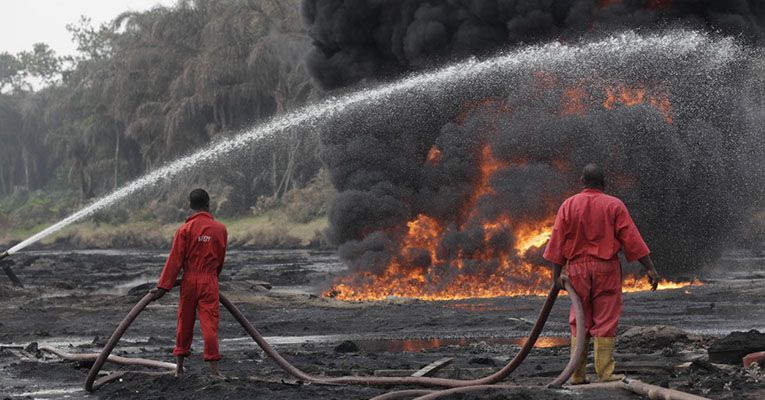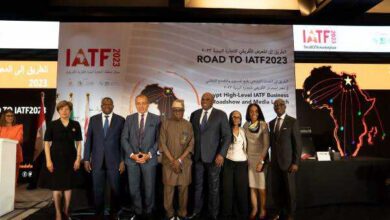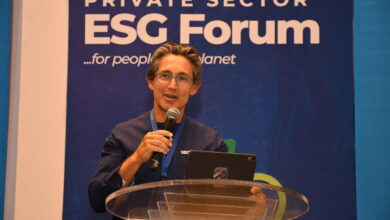Host communities, activists flay IOCs’ divestments from N’Delta

By EDU ABADE, Business Editor
Oil and gas host communities in the Niger Delta region in collaboration with environmental activists, at the weekend, decried international oil companies (IOCs) for divesting from the region after years of fossil fuel exploration and severe pollution of their environment.
They expressed concern over the unease and confusion in the communities over their exclusion from the IOCs’ ongoing divestment processes at a one-day dialogue on Unmaking The Motives Of The IOCs For Divesting From The Niger Delta Region, organised by the Environmental Rights Action/Friends of the Earth Nigeria (ERA/FoEN) in Yenagoa, in Bayelsa State.
Representatives of various communities, traditional rulers, leaders of thought, women, youths, academics, government officials and the media, among others, attended the consultation on Saturday April 23, 2022.
Traditional rulers, who attended the dialogue, are the Chairman, Bayelsa State Traditional Rulers Council, King Bubaraye Dakolo, as well as King W.D. Amakiri and King Francis T. Dodo of Oruma and Ikebiri kingdoms respectively.
Executive Director of ERA/FoEN, Chima Williams, who briefed participants about its engagements on unmasking IOC divestments and the fact that divestment has become a major issue, as oil majors flee their toxic onshore facilities and go offshore to evade monitoring, said the exclusion of communities and community concerns were crucial to discussions on how to address the underlying issues of environmental pollution, hence the decision to hold the dialogue in Bayelsa, being adjudged the most oil impacted state in Nigeria.
Prof. Sofiri Joab-Peterside of the Department of Sociology, University of Port Harcourt and Vice Chancellor, Federal University Otuoke, Bayelsa State, Prof. Teddy Alias, whose intervention impacted Shell’s activities in Otuagbagi in Oloibiri Kingdom, spoke to the issues.
Read Also: Edo community Idumu-Ohanle’s development association holds AGM
Participants agreed that the global environmental justice community campaign for divestment of public finance, loans and subsidies from extractive industries had been replaced, abused and misrepresented by the IOCs divesting from the Niger Delta and the Nigerian government to the detriment of local communities
“The oil and gas industry in Nigeria has only brought untold hardship on local communities through oil spills, gas flaring and other pollutions that have ruined lives, land, and livelihoods of indigenous people
In the divestment processes the IOCs deliberately ignore Memorandum of Understandings (MOUs) and Global Memorandum of Understandings (GMOUs) agreed with oil-bearing communities
“Divesting IOCs abandon toxic assets and complex problematic relationships with communities that the Domestic Oil Companies (DOCs) have inherited and continue to perpetrate. The Federal Government and the regulatory agencies are complicit due to their silence over the issues, as IOCs dictate the terms of divestments,” they said.
They argued that in decision-making on the divestment processes and other matters relevant to communities in the Niger Delta, the IOCs and the Federal Government have excluded them and that the divestment processes pose grave threats to ongoing court cases instituted by the communities against the companies.
“The divestment processes have largely weakened local struggles for environmental justice. It has equally divided communities. Domestic oil companies have inherited and continue the tradition of impunity and lack of accountability to local communities.
“Although all community people of all classes have suffered exclusion in the divestment processes, women and children suffer profoundly because the ongoing processes further aggravate their non-inclusion at all levels of engagement.
“Media spotlight on oil and gas matters has largely ignored divestment and other matters crucial to the communities of the Niger Delta,” they added.
In a communiqué issued at the end of the dialogue, the Ikarama, Ikebiri, Otuagbagi, Sangana, Nembe, Egebekiri, Okoroma and Otuogidi communities submitted that there was the need for a better understanding and deeper community engagement on the global environment justice community definition of divestments with regard to the model of the IOCs in the Niger Delta.
They also stressed the need for communities to embrace the Leave The Oil In The Soil campaign and hold the oil and gas companies accountable for nearly six decades of ecocide in the Niger Delta as precursor to remedial actions and compensations.
“The cases instituted by the Niger Delta communities in The Hague and United Kingdom (UK) courts are models of litigation successes. The Federal Government should compel divesting IOCs to honour MOUs, GMOUs and other agreements with communities
“The IOCs should decommission their toxic assets and carry out remedial actions monitored by independent bodies and civil society in the communities. They should integrate the communities and make them the central focus of ongoing divestment processes,” the communiqué reads.
The communities also advocated strengthening of communities, civil society struggles and voices for environmental justice through capacity building and awareness creation trainings, stressing that this should include peaceful engagements, sharing of experiences and learning to engage the process.
“There is the need for demilitarisation of the Niger Delta communities that are legitimately agitating for a safer environment for their development, prioritisation of women and women concerns in ongoing divestment discussions and decision-making, as well as in-depth investigation and reportage of IOC divestments and other underreported issues of the country’s oil and gas industry,” they added.
Click on The Trumpet to follow us on our facebook page for more:




